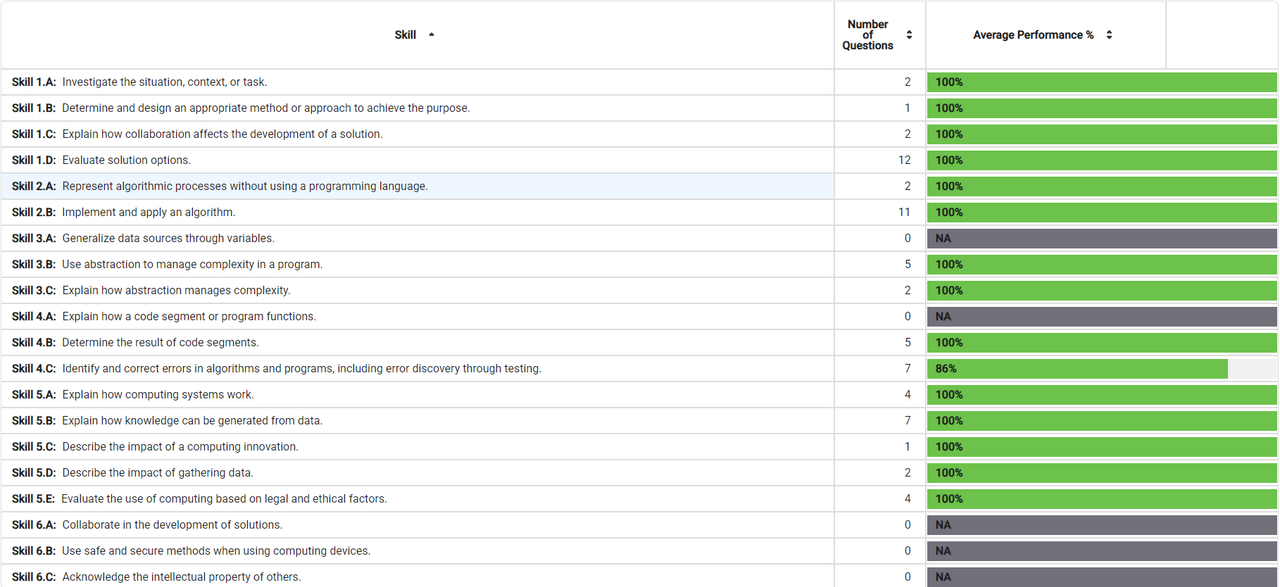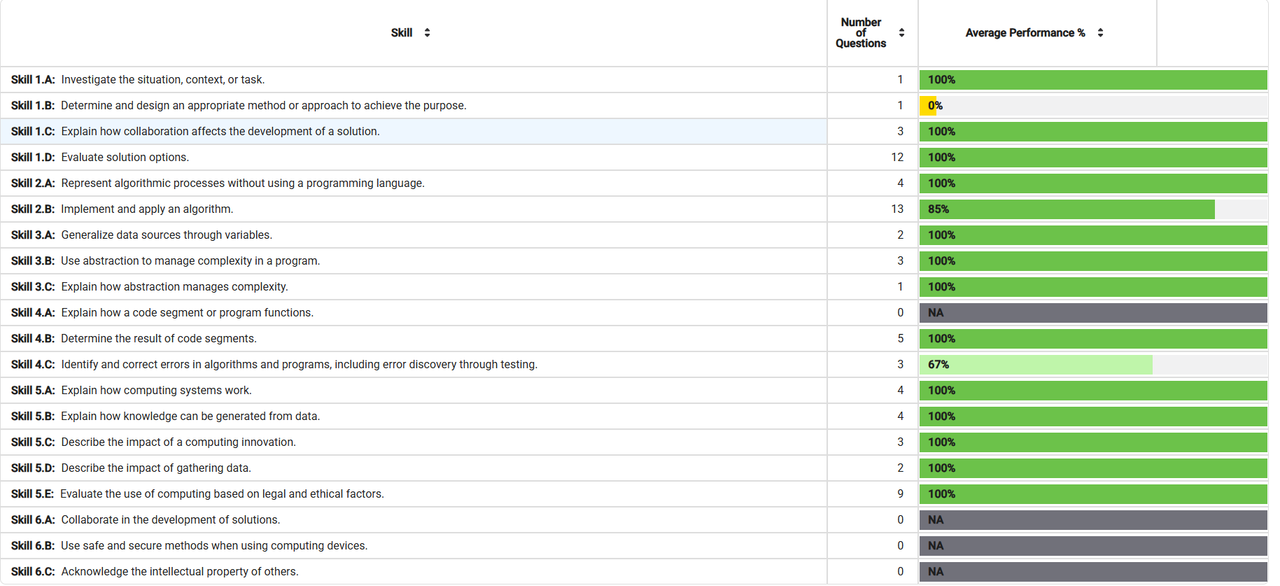How I’ve Been Studying
- I’ve been actively engaging with the lessons by completing the MCQs given by college board
- I also review and do the hacks for the lessons we have been doing this tri to ensure I understand all of the differnt topics collegeboard can ask.
- For each of the topics after the lesson, I go to the college board MCQs I have done and practice questions from that topic.
- This approach has helped me better improve my understanding of the topics and has allowed to give me good MC scores.
Big Idea 5 Summaries
Beneficial and Harmful Effects
- Learned how computing innovations can have both positive and negative impacts.
- Explored examples like social media and its influence on mental health and communication.
- Reflected on the responsibility of developers in innovation.
Digital Divide
- Understood disparities in access to technology and the internet.
- Discussed real-world implications like education and economic inequality.
Computing Bias
- Learned how bias can enter algorithms through data and design choices.
- Discussed examples like facial recognition and hiring algorithms.
- Explored ways to reduce bias through testing and diverse data sets.
Crowdsourcing
- Understood how data and solutions can be collected from a large group of people online.
- Explored platforms like Wikipedia and open-source projects.
- Recognized the power and potential drawbacks of public collaboration.
Legal and Ethical Concerns
- Studied laws related to computing like copyright and privacy regulations.
- Reflected on ethical concerns in data use, AI, and user consent.
- Practiced identifying ethical dilemmas in tech scenarios.
Safe Computing
- Learned best practices for personal digital security (e.g., strong passwords, two-factor authentication).
- Discussed risks like phishing, malware, and social engineering.
- Emphasized responsible online behavior and digital citizenship.
Big Idea 3 Summaries
Binary Search Algorithms
- Learned how binary search efficiently finds elements in sorted lists. Cuts list in half repeatedly until it finds the target.
- Compared binary search to linear search in terms of performance (O(log n) vs O(n)).
- Practiced implementing binary search using conditionals and loops.
Lists and Filtering Algorithms
- Practiced using lists and filtering to process and extract data.
- Understood how to apply selection and iteration concepts.
- Used algorithms to solve problems involving search and data handling.
Big-O
- Learned how to analyze algorithm efficiency using Big-O notation. O(1), O(log n), O(n), O(n^2), O(n log n), O(n!).
- Compared different algorithms in terms of performance and scalability.
- Recognized the importance of writing optimized code.
Random Algorithms
- Explored how randomness is used in computing (e.g., simulations, games).
- Discussed unpredictability and fairness in randomized solutions.
Simulations
- Understood how computer models simulate real-world systems.
- Applied simulations to problems like climate models or traffic patterns.
- Learned how assumptions and limitations affect accuracy.
Undecidable Problems
- Discovered that some problems cannot be solved by any algorithm.
- Studied examples like the Halting Problem.
- Understood the boundaries of what computing can and cannot do.
Graphs and Heuristics
- Graphs model relationships using nodes (vertices) and edges (connections); used in pathfinding (Google Maps), web ranking (PageRank), and network routing.
- Complete Graph: Every pair of nodes is directly connected.
- Adjacency Matrix (2D array of 0s/1s) vs. Adjacency List (each node stores a list of neighbors).
- Heuristics are smart shortcuts for solving complex problems when exact solutions are too expensive.
- Examples of heuristics: Nearest Neighbor (TSP), Greedy Algorithms (Coin Change), and Heuristic Search (using distances like Manhattan or Euclidean).
MCQs Scores Reflection


- I mastered a majority of the skills during the MCQs.
Skills I can Imporve on
- However one skill I missed out on multiple MCQs was skill 4.C: Identify and correct errors in algorithms and programs, including error discovery through testing. This skill fallls under the topic 1.4 Identifying and Correcting Errors
- I can improve on this skill by continuing to code and help others fixing bugs in code.
Skills that weren’t present in the test:
- Skill 4.A: Explain how a code segment or program functions.
- Skill 6.A: Collaborate in the development of solutions.
- Skill 6.B: Use safe and secure methods when using computing devices.
- Skill 6.C: Acknowledge the intellectual property of others.
- I can improve these skills by practicing other MCs by collegeboard.
How I Plan to Continue Studying for the AP Exam
- Continue practicing more multiple-choice questions to build speed and accuracy.
- Review specific topics missed in the MCQs
- Start answering Free Response Questions (FRQs), and practice with FRQ wording.
- Review key vocabulary/ CPT Wording
- Work with peers to review MCQs to learn what I was making mistakes on.